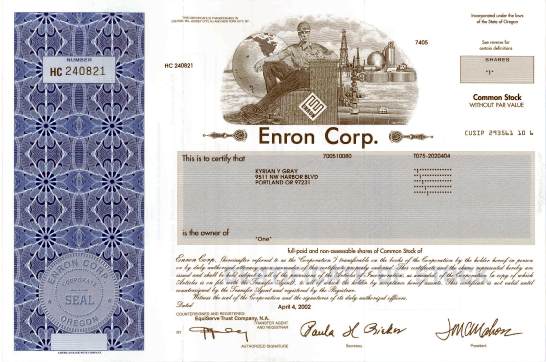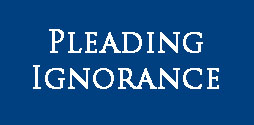Financial Archive
Seagram’s Sisters Lawsuit Makes Start-up Funding Look Easy
March 26th, 2010. By AbiK
 pssst…looking for some start-up funding? I may have your angel. The Seagram’s sisters—aka, Clare and Sara Bronfman. Yes, the daughters of mega mogul Edgar Bronfman, Sr. They’ve already plowed millions (we’re talking close to $100M) into an investment scheme of self-made self-help wannabe whiz, Keith Raniere—and lost them. Where was that psychic they were talking to? So maybe they’ll be looking for a new opp—esp. now that word on the street is that daddy Bronfman is a bit pissed.
pssst…looking for some start-up funding? I may have your angel. The Seagram’s sisters—aka, Clare and Sara Bronfman. Yes, the daughters of mega mogul Edgar Bronfman, Sr. They’ve already plowed millions (we’re talking close to $100M) into an investment scheme of self-made self-help wannabe whiz, Keith Raniere—and lost them. Where was that psychic they were talking to? So maybe they’ll be looking for a new opp—esp. now that word on the street is that daddy Bronfman is a bit pissed.
Clare and Sara apparently got a bit “taken in” by Raniere and his NXIVM group-awareness seminar company. So much so that their daddy refers to it as a “cult”. Here’s what Clare Bronfman has to say about Raniere on her—rather low-budget-looking considering she could afford a web guy—website:
Keith Raniere – Keith is my teacher and my best friend. My life is so profoundly different from when I first met him words can’t describe my gratitude. The depth of his caring for the individual people, with whom he works, as well as humanity collectively, is remarkable to me. His dedication to helping people experience more joy in their lives through self discovery and understanding has been an incredible gift to so many of us. Through his ongoing commitment to live an ethical existence, dedicated to doing what is right for all of humanity, he continues to inspire me.
So what’s NXIVM? —if helps if you can first pronounce it, which the NY Post kindly shares as NEX-EEUM. NXIVM was founded by Nancy Salzman who seems to have a hefty CV though you’d be hard-pressed to actually find her credentials—i.e., the ones that include abbreviations like “B.A.”, “M.S.”, “PhD”, Read the rest of this entry »
10 Clues you’re with the wrong Investment Broker
March 10th, 2010. By AbiK
Nowadays, just about everybody’s been wondering if their money’s in the right place. But economic woes aside, these ten clues ought to give you that something’s-not-right feeling in your gut when it comes to your investment broker’s handling of your account—and possibly grounds for a securities fraud case…
1. There’s inconsistency between your broker’s verbal statements and the performance of your investments.
2. There are misrepresentations by your broker, or important information about an investment which the broker did not disclose—particularly regarding the investment’s level of risk.
3. If you notice frequent and excessive trading in the account, including “in and out” trading.
4. You notice trading in high risk, speculative or unsuitable investments.
5. Your broker is managing your account by trading in securities and strategies that you don’t understand.
6. Your broker is making trades that you did not previously authorize.
7. There is trading in low-value securities or obscure companies on foreign exchanges, or private investments.
8. Your broker—or his supervisor—fail to respond to your complaints.
9. Your broker makes repeated promises to make up for losses through various devices.
10. There is a loss of funds or value in the account that you do not understand, and your broker cannot reasonably explain.
Debit Card Overdraft Fees – An Update
November 30th, 2009. By LucyC
 First the good news—maybe—on November 12, the Federal Reserve announced that new rules governing the seemingly rampant application of overdraft fees linked to debit card use would be initiated. Now the bad news—maybe—the rules don’t come into effect until next summer—July 1st, 2010 apparently.
First the good news—maybe—on November 12, the Federal Reserve announced that new rules governing the seemingly rampant application of overdraft fees linked to debit card use would be initiated. Now the bad news—maybe—the rules don’t come into effect until next summer—July 1st, 2010 apparently.
The development of these rules is a direct result of loud consumer reaction to the banks’ deceptive and abusive consumer lending practices.
Of course the argument that the rules will provide any real benefit at all has just begun. More on that in a minute.
So what protection will the new rules offer you? Here’s the scoop—straight from the Federal Reserve website:
The final rules would “…prohibit financial institutions from charging consumers fees for paying overdrafts on automated teller machine (ATM) and one-time debit card transactions, unless a consumer consents, or opts in, to the overdraft service for those types of transactions.
Before opting in, the consumer must be provided a notice that explains the financial institution’s Read the rest of this entry »
4 Fees To Spoil Your Christmas
November 11th, 2009. By Kristine B
aka, How the Financial Grinches Stole Christmas…
 Christmas is just around the corner. How do I know? Because one of my oh-so-thoughtful Facebook friends has already started the Christmas countdown. And, like so many people out there, my concern is with affording Christmas, especially given all the traps and fees associated with bank accounts, credit cards, prepaid debit cards and payday loans. So, to help sort things out, Pleading Ignorance is looking at the top four fees that are likely to have an impact on you this holiday season.
Christmas is just around the corner. How do I know? Because one of my oh-so-thoughtful Facebook friends has already started the Christmas countdown. And, like so many people out there, my concern is with affording Christmas, especially given all the traps and fees associated with bank accounts, credit cards, prepaid debit cards and payday loans. So, to help sort things out, Pleading Ignorance is looking at the top four fees that are likely to have an impact on you this holiday season.
Why are we so concerned about fees? Well, people have complained to us over and over again that they had no idea these various fees could be charged (they’re called “hidden fees” because you’re not necessarily aware of them—like it’s some sort of game). So, while you’re out buying that super-duper, fancy-schmancy toy-thing that your child has always wanted and just can’t live without, you may find that in addition to the $50 price on the toy, you may be paying some very steep fees. That’s how the financial grinches can steal your Christmas. Here’s what they’ve got in their bag of tricks this season, and what you need to look out for… 
1. Bank Overdraft Fees
I’ve already discussed this, but it bears repeating. Yes, some of the banks have agreed to change their overdraft fee policies. Yes, lawmakers are looking to rein banks in (although when we look at all the good it’s doing with credit cards, we have to wonder if it’s worth the effort).
The banks are being accused of automatically enrolling customers in overdraft protection, not telling them about that protection and then charging a fee for that protection (cue ominous laugh here). Even more terrible, they’re accused of reordering transactions to get the highest number of overdraft fees; processing debits before credits so that customers are forced into Read the rest of this entry »
AG Edwards Class Action – Update 1
November 11th, 2009. By LucyC
 We’ve had a lot of interest from you about the status of the A.G. Edwards class action and what, if any mutual funds may be involved. This is what we’ve managed to find out—we hope it helps. We’ll continue to follow this for you, so keep your questions coming.
We’ve had a lot of interest from you about the status of the A.G. Edwards class action and what, if any mutual funds may be involved. This is what we’ve managed to find out—we hope it helps. We’ll continue to follow this for you, so keep your questions coming.
First off, why where you notified about the AG Edwards (AGE) Class Action?
According to official documentation provided on the AGE class action website:
“Records show that you maintained a brokerage account at A.G. Edwards in which you may have held shares of any mutual funds that were advised by, distributed by, or in any way related to companies that compensated A.G. Edwards based, at least in part, upon the holdings of A.G. Edwards’ clients in the respective mutual funds during any part of the period beginning on April 12, 2000 and ending on April 12, 2005. This notice explains that the Court has allowed, or “certified” a class action lawsuit that will affect you if you are a member of the Class.”
So, a class has been certified, which means the lawsuit can proceed as a class action. No determination of right or wrong has been made—and that could be decided in court. Again, according to the official documentation:
“The Court has not decided whether A.G. Edwards or the Plaintiffs are correct. By establishing the Class and issuing this Notice, the Court is not suggesting that the Plaintiffs will win or lose the case. The Plaintiffs must prove their claims at a trial scheduled to start on December 14, 2009.”
So what AG Edwards mutual funds qualify?
According to the documentation, the following is a list of mutual funds “that might be involved:” Read the rest of this entry »
Archive by Category
- Accidents (24)
- Airlines (9)
- Asbestos Mesothelioma (262)
- Automotive (25)
- Celebrity (14)
- Class Action (84)
- Complaints/Comments (15)
- Consumer Fraud (84)
- Contest (2)
- Court of Public Opinion (5)
- Crazy Sh*t Lawyers See (61)
- Criminal Law (4)
- Defective Products (111)
- DePuy ASR Hip Recall (2)
- Discrimination (22)
- Drugs/Medical (248)
- Elder Care Abuse (4)
- Emerging Issues (462)
- Employment (54)
- Environment (52)
- Financial (28)
- Food Illness (15)
- Human/Civil Rights (4)
- Insecurities (5)
- Insurance (16)
- Intellectual Property (16)
- Internet/E-commerce (19)
- lawsuits (161)
- Lawyers (20)
- Lawyers Giving Back (43)
- Lex Levity (10)
- Personal Injury (106)
- Pleading Ignorance (53)
- Real Estate (2)
- Recall (6)
- Scam (3)
- Securities (13)
- Settlement (81)
- Tort Reform (2)
- Totally Tortelicious (81)
- Veterans (11)
- Whistleblower (9)